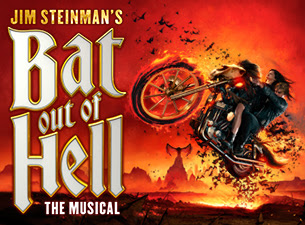Carrie (book) Review
Usually, when deciding which book to read next, I tend to
avoid the “classics”. From many bad experiences with “classic novels” in the
tedious GCSE torture that was English and English Literature, I often find them
overrated and over complex in writing style, something which I (as a very weak
reader) cannot usually cope with. It is for these reasons that me choosing
Stephen King’s horror classic ‘Carrie’ off of the beautifully over-stoked shelf
of Waterstones was completely out of character.
‘Carrie’ tells the story of a young girl, Carrie White, who
is heavily picked on by her fellow classmates. As the novel progresses, so does
her power of telekinesis, thus stemming a suspenseful and tense plot, right
until the very last page.
I found that they storyline itself was horrifyingly
relatable, thus causing several of the faultlessly described events to bring a
lump to my throat, a reaction that many eighteen-year-old girls assumedly had. Not
only does this book display a disturbing level of bullying and insecurity
within each of its twists, the readers’ emotional response is, to me, heightened
by the believable and realistic characters.
Carrie White herself is a fascinating, portraying a (for
lack of a better word) broken, damaged and vulnerable young girl, who exhibits a
telekinetic power that is seemingly out of her control. Her reactions,
anxieties and fears are all believable, making the things which happen to her
increasingly disturbing and heart-breaking. Her persona also contrasts largely
with her actions which unfold, thus stemming a gruesome and emotive ending with
a somewhat impressive body count. Another character who is explored in detail
is Carrie’s ‘obsessively’ religious mother, who is seemingly the cause for
Carrie’s vulnerability and damage. Both characters are very complex, and it was
enjoyable to explore their histories and the effect the past events had then
had on them.
One predominant criticism I have for this book is the style
of writing and structure. The story is told in third person (something I
usually dislike; however felt was appropriate as we do see characters other
than Carrie stemming vital events within the story), as well as ‘extracts’ from
other media sources, such as newspapers, interviews and reports. I personally
found that some of these featured extracts were dull and became tempting to
skip, as well as finding them overly complicated to begin with. On top of this,
there are several occasions where characters thoughts are presented to the reader
and these are featured in brackets. Due to the fact that I had never seen this
style before, I did find it overly complicated, and I didn’t realise that they
were a character’s thought until I had almost finished the book. I did find
that the more I read, the more I began to get my head around the narrative, but
it is, to me, a case of just trying to stay with it.
As King’s first published novel, it is an enjoyable and
evocative read, which cleverly explores the twisted nature of human beings, as
well as emotional limits. It is worth noting that the chapters are quite long,
which (if you’re like me and always read a few chapters of a book before bed) did
seem to make it more of a struggle to read, but I’m sure that that is the kind
of thing that only I worry about. The book itself is also quite small, which I
found great for keeping it in my bag and taking it on holidays with me.
Overall, I was impressed, and will definitely be looking into purchasing more
of King’s novels in the future.



Comments
Post a Comment